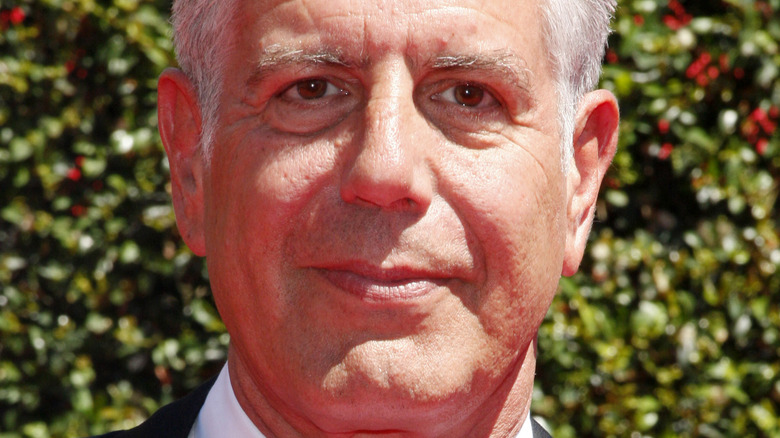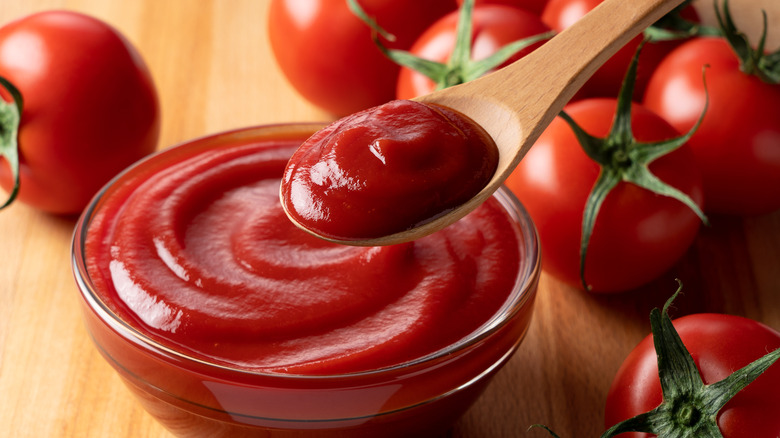Why Anthony Bourdain Wanted Nothing To Do With Fancy Ketchup
With opinions ranging from admiration to pure loathing, Anthony Bourdain pulled no punches when it came to his feelings about one condiment in particular: ketchup. In an interview with Thrillist, the late television star stated his thoughts about the red stuff quite plainly. "I think it's a matter of personal taste," Bourdain said. "I've never had ketchup better than, you know, the common variety. Plus, that's such a bone-deep flavor profile. Don't f*** with it, you know?" No fancy ketchup at his table, thank you very much.
Bourdain's rebuke could be viewed more broadly as a rebuke not only of fancy ketchup but of artisan condiments as a category. There has been, and continues to be, a growing trend towards using high-end, craft condiments, or restaurants making their own in-house. While certainly not against restaurant individuality and experimentation, you wouldn't be caught putting Chipotle aioli on Bourdain's burger.
He put it somewhat more succinctly in his "Appetites" cookbook. "Let ketchup do its job. And don't make 'house-made ketchup' either. Why would you do that? If it's not broken, as they say, why the f*** would you fix it?" he asked. Of all things to criticize, however, what is it about fancy ketchup that Bourdain could have possibly disliked?
What is fancy ketchup, anyway?
If you think fancy ketchup is just a label smacked on bottles to demand a higher price, you're only half right. There is virtually no difference, in terms of ingredients between fancy and regular ketchup. Both are derived from tomato concentrate, distilled white vinegar, high fructose corn syrup, salt, plain corn syrup, salt, onion powder, and other "natural flavors." Well, if the ingredients are the same, then what the heck is the difference between fancy and regular ketchup?
It all comes down to consistency, color, texture, and flavor. The USDA actually rates ketchup on a graded scale between A and C. Naturally, Grade A is considered the highest quality, and therefore the fanciest. So, what does this fanciness entail? In order for the USDA to grant Grade A status to ketchup, it needs to be exceptionally smooth and intensely red. It also has to be free from defects and have a solids percentage of 33%. In other words, not watery.
While McDonald's and other fast food chains have adopted fancy ketchup, and it can be found in the condiment aisle of any grocery store, for Bourdain, this was messing with a formula that wasn't broken in the first place. He saw no need for redder or smoother ketchup on his hamburger or fries. A good old glass bottle of regular Heinz sitting half-empty at the end of the diner table was good enough for him.

